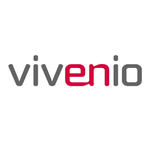Description

Gigwell

Sparxo
Comprehensive Overview: Gigwell vs Sparxo
Gigwell and Sparxo are both platforms focused on the events and entertainment industries, but they cater to slightly different aspects and target markets within that space.
Gigwell
a) Primary Functions and Target Markets
-
Primary Functions:
- Gigwell offers a comprehensive booking management platform designed for artists, booking agents, and event managers. It streamlines the entire booking process—from inquiry and negotiation to contract management and payment.
- Core features include contract automation, integrated payments, calendar management, and collaboration tools to improve communication and efficiency within booking teams.
-
Target Markets:
- Its primary audience includes music artists, speakers, artists’ managers, booking agencies, and talent buyers. The platform is tailored to professionals in the music and live entertainment sectors who require a more efficient way to manage bookings and tours.
b) Market Share and User Base
- Gigwell is recognized as a key player within the niche of artist booking management platforms. While specific market share percentages are not publicly available, Gigwell's focus on the artist and agency segment has earned it a sizable share in that niche. It is particularly popular among independent artists and mid-sized agencies.
c) Key Differentiating Factors
- Automation and Streamlining: Gigwell's extensive automation capabilities for contracts and payments set it apart. Its workflow tools are designed specifically to address the complexities of booking in the music industry.
- Integration with Industry Tools: Gigwell integrates with other industry-standard platforms like G Suite, Dropbox, and various CRMs, enhancing its utility for agencies accustomed to using multiple tools.
- Specialization: By focusing exclusively on the booking process, Gigwell provides specialized functionalities that general event management platforms might lack.
Sparxo
a) Primary Functions and Target Markets
-
Primary Functions:
- Sparxo specializes in event ticketing and audience engagement. It provides tools for event organizers to sell tickets, manage guest lists, and promote events through social media integration.
- The platform emphasizes building communities around events, aiming to enhance attendee experience and foster loyalty.
-
Target Markets:
- Sparxo targets event organizers across various sectors, including concerts, festivals, conferences, and nightlife events. While it can be used for any event type, it's particularly favored by organizers who prioritize attendee engagement and community building.
b) Market Share and User Base
- Sparxo operates in the competitive event ticketing market, alongside platforms like Eventbrite and Ticketmaster. While less dominant than these giants, Sparxo carves out a niche for event organizers who want greater control over their ticketing process and customer data.
c) Key Differentiating Factors
- Community Building Focus: Unlike many traditional ticketing platforms, Sparxo emphasizes building a social community around events. This is particularly beneficial for events aiming to cultivate repeat attendees.
- Data Ownership: Sparxo allows event organizers more control and ownership over their attendee data, which is a significant advantage for those looking to leverage marketing insights and engage directly with their audience.
- Customization and Branding: The platform offers more extensive customization options for event pages and branding, helping organizers maintain a consistent brand presence.
Conclusion
Both Gigwell and Sparxo cater to the events industry, yet they serve different needs. Gigwell is ideal for those focusing on booking management, particularly in the music industry, while Sparxo provides tools for event ticketing and community engagement. Their differentiating features reflect their core purposes, with Gigwell emphasizing process automation and Sparxo focusing on enhanced attendee interaction and data control. In terms of market share, both occupy important niches but face competition from broader and more established platforms in their respective areas.
Contact Info

Year founded :
2014
Not Available
Not Available
United States
Not Available

Year founded :
Not Available
Not Available
Not Available
Not Available
Not Available
Feature Similarity Breakdown: Gigwell, Sparxo
To provide a detailed feature similarity breakdown for Gigwell and Sparxo, let's examine the core features, user interfaces, and unique aspects of each product:
a) Core Features in Common
Gigwell and Sparxo both cater to the event management and ticketing industry, and share several core features:
-
Ticketing and Registration:
- Both platforms offer tools to sell and manage event tickets, including early bird pricing, promotional codes, and group discounts.
-
Event Management:
- They provide comprehensive event management solutions, allowing users to organize, plan, and execute events efficiently.
-
Integrated Payment Processing:
- Both platforms offer integrated payment gateways to facilitate seamless transactions for ticket purchases.
-
Analytics and Reporting:
- They include analytics tools to track sales, revenue, and attendance, helping event organizers measure success and make informed decisions.
-
Social Media Integration:
- Both services allow integration with social media to promote events and engage with attendees.
-
Custom Branding:
- Event organizers can customize event pages and ticket designs to match their brand aesthetics.
b) User Interface Comparison
Gigwell:
- Gigwell's user interface is designed with a focus on artist management and booking. It tends to offer a sleek, modern interface with intuitive navigation tailored towards managing gigs and talent bookings. The dashboard provides a comprehensive overview of schedules, contracts, and payments.
Sparxo:
- Sparxo's user interface emphasizes simplicity and ease of use for event creators. It offers a clean, user-friendly design focused on creating and managing event pages. Sparxo provides a straightforward process for ticket buyers, enhancing the customer journey.
In summary, while both platforms aim for usability, Gigwell's UI may feel more detailed towards artist and booking management, whereas Sparxo prioritizes straightforward event creation and ticket sales.
c) Unique Features
Gigwell:
- Artist Roster Management: Gigwell offers tools for managing and booking artists, making it particularly beneficial for agencies representing multiple talents.
- Contract Management: It provides features for handling contracts, offers, and managing payouts to artists, which is a distinct advantage for comprehensive talent and gig management.
Sparxo:
- On-Site Ticket Scanning and Check-In: Sparxo offers robust on-site solutions for checking in attendees using mobile devices, which can be a valuable feature for larger events.
- Social CRM: It includes CRM features that focus on building a community around events, allowing organizers to interact with attendees and create targeted follow-ups.
Each platform brings unique strengths to the table, with Gigwell focusing more on talent and agency management, while Sparxo leans towards creating a seamless and community-driven event experience.
Features

Client Communication
Contract Management
Booking Management
Financial Tracking

Ticketing Solutions
Event Management
Marketing Tools
Analytics & Reporting
Attendee Management
Best Fit Use Cases: Gigwell, Sparxo
Gigwell and Sparxo are both platforms that facilitate event management, but they cater to different aspects of the event industry and are suited for varying types of users and scenarios. Here's a detailed breakdown:
a) Gigwell
Best Fit Use Cases:
-
Music and Entertainment Industry: Gigwell is specifically designed for the music and entertainment industry. It is ideal for booking agents, artists, event managers, and promoters who are involved in organizing live performances, tours, and other entertainment events.
-
Talent Agencies: Agencies that manage multiple artists or performers can benefit from Gigwell’s features, which streamline the booking and contract management processes.
-
Independent Artists: Musicians and performers looking to manage their own booking processes without the overhead of an agency can use Gigwell to handle contracts, payments, and itineraries efficiently.
Industry Verticals and Company Sizes:
- Focus on Entertainment: Primarily targets the entertainment sector, particularly live music and performances.
- Suitable for Small to Mid-sized Teams: Ideal for both small independent artists and larger talent agencies, as the platform scales with usage.
b) Sparxo
Preferred Scenarios:
-
Event Organizers: Best for individuals or companies organizing events who need robust ticketing solutions. Sparxo excels in scenarios where ticket sales and attendee engagement are a priority.
-
Festivals and Conferences: Large-scale public events such as festivals, fairs, and conferences can utilize Sparxo for its customized ticketing options and data management capabilities.
-
Clubs and Nightlife Venues: Sparxo’s social and community-focused features make it well-suited for clubs and nightlife venues looking to create engaging experiences for attendees.
Industry Verticals and Company Sizes:
- Broad Spectrum: While it can cater to various types of events, it is particularly useful for entertainment and social-oriented events.
- Scalable for Various Sizes: The platform can accommodate everything from small local events to large-scale national events, making it versatile for different business sizes.
d) Catering to Industry Verticals and Company Sizes
Gigwell:
- Music and Entertainment Focus: Gigwell is tailored for the intricacies of artist booking and management, making it less ideal for non-entertainment industries.
- Varied Team Sizes: Supports both individual artists and larger agencies by providing scalable tools to manage bookings across different levels of complexity.
Sparxo:
- Diverse Event Types: Sparxo is more versatile for different event types, not just limited to entertainment, but also capable of handling corporate, educational, and social events.
- Flexible for All Sizes: Its features can be adapted for small independent event planners as well as large organizations running multiple large-scale events.
In summary, Gigwell is the best choice for those heavily involved in the music and entertainment industry dealing with talent and booking management. In contrast, Sparxo is more suitable for general event organizers who need comprehensive ticketing solutions and community engagement features for a wider range of events.
Pricing

Pricing Not Available

Pricing Not Available
Metrics History
Metrics History
Comparing undefined across companies
Conclusion & Final Verdict: Gigwell vs Sparxo
To determine the best overall value between Gigwell and Sparxo, it is essential to assess each platform's features, pricing, user base, and support. Here's a detailed comparison and conclusion:
a) Best Overall Value
Gigwell:
- Primarily focused on artist booking and management.
- Integrates financial tools for invoicing and payments.
- Offers features such as contract management, CRM, and real-time analytics.
Sparxo:
- Tailored towards event ticketing and registration.
- Provides white-label solutions for branding.
- Includes social sharing tools, attendee management, and seamless integration with marketing platforms.
Conclusion: The best overall value depends on the user's primary needs. If the focus is on artist management and the booking process, Gigwell offers more tailored tools for these purposes. Conversely, if event ticketing and audience engagement are the focus, Sparxo provides a more specialized solution with robust features for ticketing.
b) Pros and Cons
Gigwell:
-
Pros:
- Comprehensive artist management features.
- Strong financial management tools.
- Customizable contracts and client interaction features.
-
Cons:
- Might be overkill for users primarily needing ticketing solutions.
- Learning curve could be steep for those unfamiliar with artist management.
Sparxo:
-
Pros:
- Excellent for event ticketing and attendee management.
- User-friendly and integrates well with social media for marketing.
- Customization options for branding.
-
Cons:
- Limited features for artist management and booking.
- Focused mainly on event organizers rather than artists or agencies.
c) Recommendations
-
For Artists and Agencies: If managing artists, contracts, and bookings is your central requirement, Gigwell is the clear choice. It provides all the necessary tools to handle complex artist management processes effectively.
-
For Event Organizers: If your primary need is selling tickets and managing event attendees, Sparxo is preferable. It offers an intuitive platform with tools designed to maximize ticket sales and engage with attendees.
-
Consider Integration Needs: If you require features from both domains—such as managing artists but also hosting events with ticket sales—evaluate whether integrating both platforms is feasible or necessary. Sometimes having separate tools might serve best, offering specialized functionalities without compromise.
-
Budget Considerations: Analyze the pricing models of both platforms in relation to your specific needs. Ensure that the cost aligns with the benefits derived from the features you're most likely to use.
Ultimately, the decision between Gigwell and Sparxo should be guided by the specific needs of the user and the functionality required to meet those needs. Users should consider trialing both products, if possible, to determine which interface and set of features best facilitates their objectives.
Add to compare
Add similar companies



